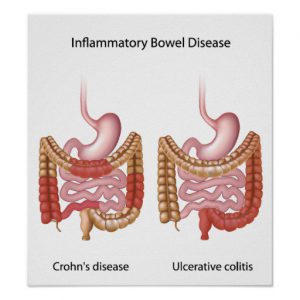Inflammatory bowel disease (IBD) is really a group of inflammatory conditions of the colon and small intestine. Crohn’s disease and ulcerative colitis are the major types of IBD. Ulcerative colitis is a colon inflammation that will last a long time, while Crohn’s Disease is inflammation of any other part of the gastrointestinal tract, but is most often inflammation of the distal ileum or colon. IBDs are actually considered autoimmune diseases in which the body’s own immune system attacks elements of the digestive system.
Common Symptoms of IBD:
- Abdominal pain
- Vomiting
- Diarrhea
- Rectal bleeding
- Very painful internal cramps/muscle spasms in the pelvis
- Anemia
- Involuntary weight loss
Usually, there are many hospitalizations in inflammatory bowel disease cases. Showing a history of hospitalizations and operations is important in presenting a good case to the Social Security Administration. Also, long-term Prednisone usage is strong evidence of a severe inflammatory bowel disease. The longer the IBD remains active, the more likely it is there will be significant involuntary weight loss – this is why it is important to present the claimant’s BMI (Body Mass Index) numbers within a specified period of time to show the weight loss has been rapid. The Centers for Disease Control have an online BMI calculator at http://www.cdc.gov/healthyweight/assessing/bmi/.
Many times there are other diseases that are associated with IBD. These associated diseases are arthritis, pyoderma gangrenosum, primary sclerosing cholangitis, and non-thyroidal illness syndrome. Medical records showing treatment for these associated diseases must be presented along with the IBS medical evidence.


 Gregory Kornegay,
Gregory Kornegay,
